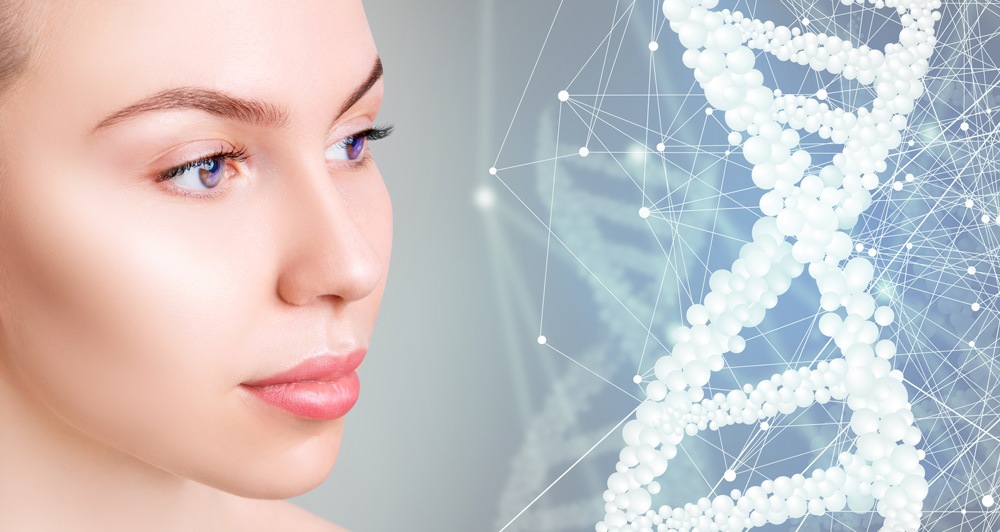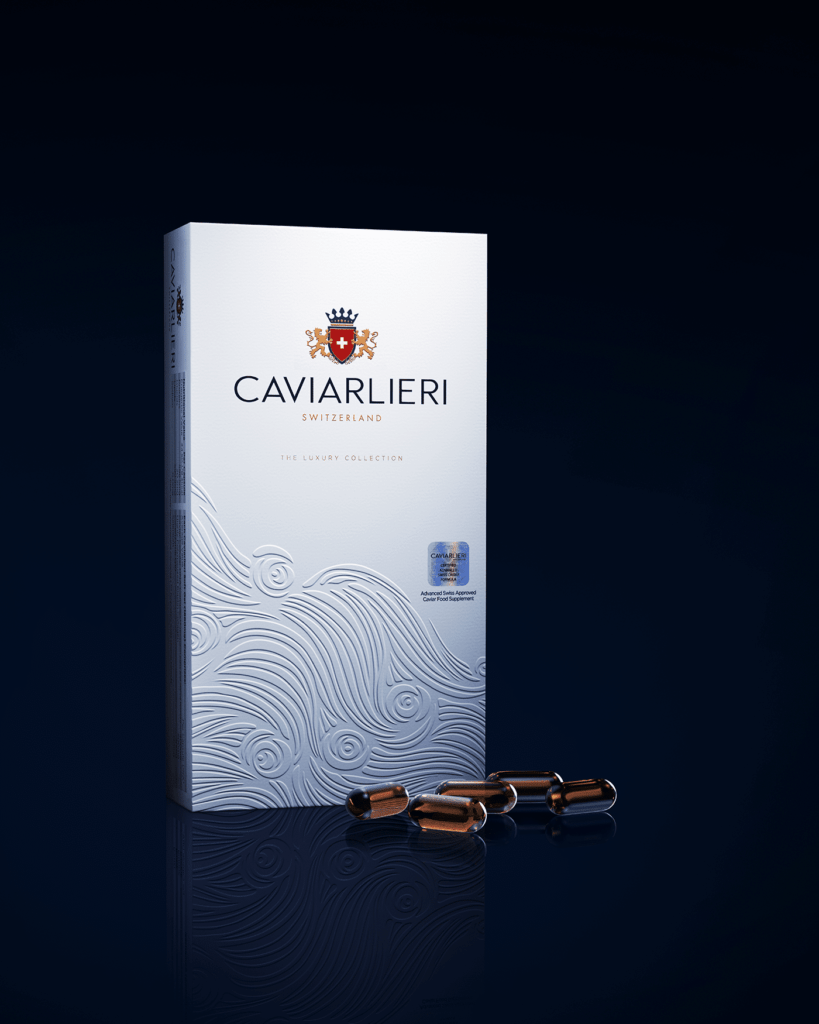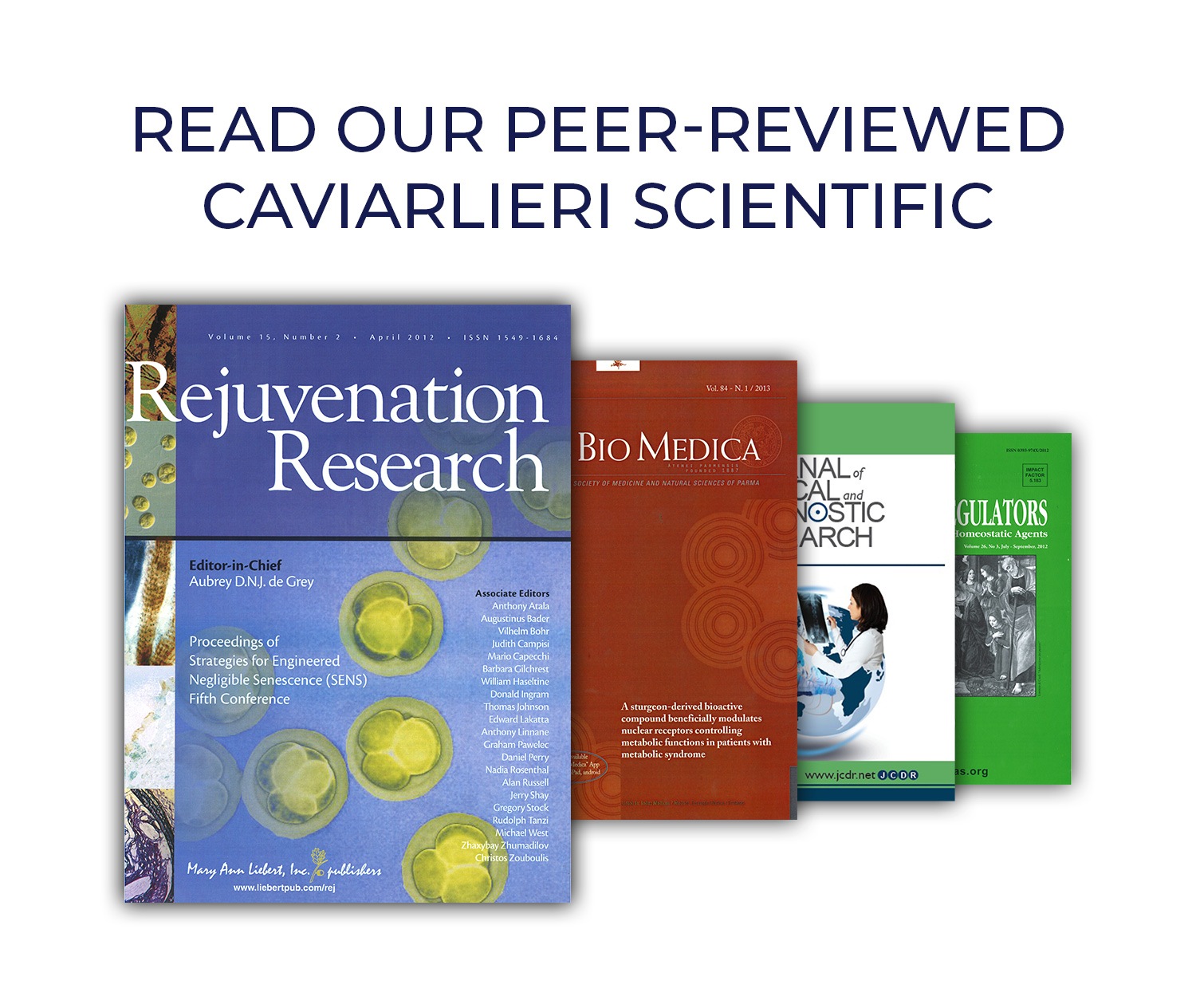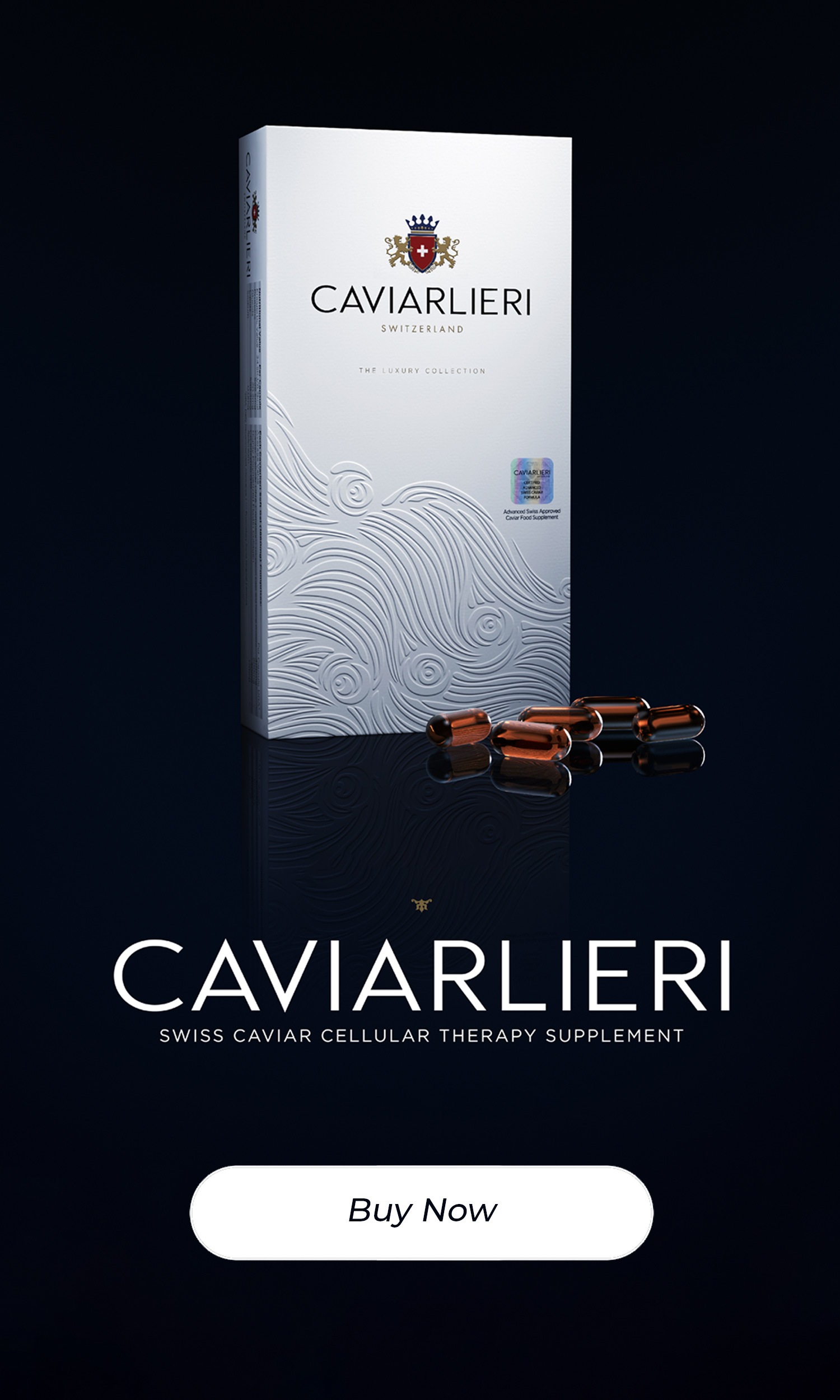What is your “Body Age” – Biological Age?
Caviarlieri | Published July 20, 2022
Do you know that you have 2 “ages”? Chronological age is the age of a person as measured from birth to a given date. Your Body Age or your Biological Age denotes how your body has aged health-wise compared to your chronological age.
Your body age (biological age) is not dependent on how many birthdays you’ve celebrated. Your cells do not celebrate your birthday. Biological age is a measurement of your age based on various biomarkers and it measures how fast you are aging.
It reflects a combination of your genetics, accumulated lifestyle factors, and other determinants such as demographics, your psychological stress , diet, and exercise habits, primarily your epigenetics. Modifications in lifestyle behaviours and habits can influence your body age, regardless of your chronological age.
Why is your Biological Age Important?
More than ever, longevity and healthy aging are important concerns because we are living longer even though we may not be living better.
“Knowing your biological age is an effective way of determining your cumulative rate of aging,” says Morgan Levine, Ph.D., assistant professor of Pathology at the Yale School of Medicine and Elysium’s Bioinformatics Advisor. Cumulative rate of aging is a measure of the pace at which your body has aged for every year you’ve been alive. Even if your chronological age and biological age may be the same from a number perspective, you may be far from leading an active and optimal quality of life . As we age, our cells age and then we age. As time passes, our cells either progress more or less rapidly than what is expected from our chronological age. After knowing your biological age, you can choose to adapt lifestyle changes that may improve your overall health.
Our DNA (deoxyribonucleic acid), holds the instructions for building the proteins that carry out a variety of functions in a cell. Your epigenome is made up of chemical compounds and proteins that can attach to your DNA. They tell the DNA what to do — turn on and off, make this protein or that. When epigenetic compounds attach to DNA, they are said to have “marked” the genome. These marks do not change the sequence of the DNA, but they do change the way cells read the DNA’s instructions. DNA methylation is one type of mark, and it can be identified and tracked as a sign of aging in different parts of the genome. Your genome or DNA always stay the same, but the epigenome changes over a lifespan.
Despite the neatness — and usefulness — of one biological age number, in reality, your tissues and organs all have their own biological age. “It’s your personalized mosaic,” Levine says. “It’s a combination of biological ages that reflect the age at which your body is expected to function .” At this stage, the averaged biological age is one of the best biomarkers for predicting a variety of aging outcomes. In the future, the goal is to become more and more specific with biological age in different parts of the body.
Can you change your Biological Age?
There is no single factor, and no guarantee that healthy living will improve your biological age or change the rate at which your biological age will change. Nonetheless, there are a number of things you can do to improve overall health and thereby increase the likelihood of slowing biological aging: diet, cultivating healthy relationships, managing stress, sleep, and exercise. Seeing a steady decline in biological age as you chronologically age is the goal, and as you age, variance increases. At 16, your biological age is likely to be close to chronological. But at 60, there’s a wider spread.
How to Age Well?
While you can’t control your age, you can slow the decline of aging with smart choices along the way. From the foods you eat and how you exercise to your friendships and retirement goals — it all has an effect on how fast or slow your body ages. Keep reading for simple ways to keep your body tuned up and your mind tuned in.

1. Watch your weight
Small changes in body weight can have a big impact on health risks. Losing a little weight has been shown to reduce your risk for diabetes and heart disease and improve metabolic function in liver, fat and muscle tissue.
2. Exercise
Regular physical activity delivers oxygen and nutrients to your tissues and helps your cardiovascular system work more efficiently. Embark on a combination of cardiovascular and weights training for fitness and your development of muscles and bones.
3. Think
Aging well means taking care of both the body and the mind. Art can inspire an aging body and mind. Activities like music, dance, painting, quilting, singing, poetry writing and storytelling add meaning, joy and a vibrant sense of well-being to the lives of people.

4. Engage, Interact and Socialize
Staying in touch with family and friends — and forming new relationships — can keep you healthier longer and may add years to your life. Make friends. Volunteer. Join a club. Stay connected. That is some of the most important advice you’ll ever get about aging well. A large body of scientific research shows that social interaction — having strong, happy relationships with family, friends and community members — is an important factor in good health and longevity.
5. Nutrition
Supplements can help meet the higher nutritional needs of your more demanding lifestyle or medical condition as you age. Stresses, medical complications, and energetic living can all create a greater need in your specific body for very specific minerals or vitamins. You need be judicious about your use of supplements. Not all supplements are backed by science and can be absorbed by your body.
Knowing where you stand and the habits that can affect your biological age can be a key component, together with healthy living, of improving your overall health. Ideally, like your chronological age, your biological age will be a number worth celebrating.
Caviarlieri Genetic Expression Studies on Anti-Aging Biomarkers
Initial in- vivo research studies on Caviarlieri at the molecular level have proven that this Swiss Caviar Cell Therapy supplement is effective in the gene expression of genes related to anti-aging, inflammation (reduction in the expression of Cox2 gene), type 1 collagen and energy (GABPB1 gene).
By providing nutrition at the cellular level, Caviarlieri can trigger protein synthesis and prompt our bodies to produce proteins through active gene induction and thereby stimulating and accelerating cellular renewal and repair against damaged cells.
Mirroring the results of the Caviarlieri studies which are published in peer reviewed journals, in PubMed and Europe PMC, the current genetic expression studies (mRNA) on Caviarlieri show that this caviar supplement can potentially help to reduce and control inflammation and thereby alleviate the symptoms associated with autoimmune diseases. The studies show that the decrease in the expression of the COX2 gene after 60 days of treatment of Caviarlieri is up to 60-fold (p <0.001). This is extremely significant.
Taking Caviarlieri supplements over time can therefore activate the body’s own system in cellular renewal and repair against cellular damage through the reduced genetic expression of COX-2.
In-Vivo research studies (at the molecular level) on Caviarlieri for patients from age 18-83 have proven that this caviar supplement is effective in the gene expression of genes related to KEY ANTI-AGING BIOMARKERS :
- COX 2 Gene – Molecular Biomarker for Inflammation
Inflammation plays a crucial role in the development of many complex diseases and disorders including autoimmune diseases, metabolic syndrome, neurodegenerative diseases, obesity, atherosclerosis, chronic obstructive pulmonary disease, arthritis, chronic inflammatory bowel disease and cardiovascular pathologies. Cyclooxygenases (COX-2) are the main mediators of inflammation by catalysing the initial step of arachidonic acid metabolism and prostaglandin synthesis (Ferrer et al.,2019), therefore COX-2 inhibitors might reduce and control inflammation in metabolic ailments and chronic degenerative diseases.
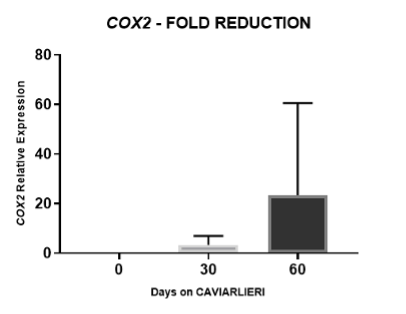
Caviarlieri intake significantly decreased the expression of the COX2 gene after 60 days of treatment up to 60-fold (p <0.001) in 5 individuals that presented with increased expression of COX2 compared to the rest of the participants as well as to COX2 gene expression of the control group.
- Type 1 Collagen Gene – COL1A1
Collagens are a family of proteins that strengthen and support many tissues in the body, including cartilage, bone, tendon and skin.
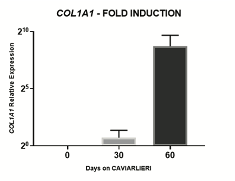
Collagen-1 (COL1A1) Gene Expression
Caviarlieri intake increased the expression of the COL1A1 gene in all participants blood after 30 days of up to 3-fold (p <0.01), while after 60 days there was a dramatic increase in its expression up to 1100-fold (p<0.0001) compared to no intake (0 days) (Figures 1, 2, 3). No significant differences were observed for the placebo participants group.
- Energy Gene Expression – GABPB1
Caviarlieri helps increase in energy levels of participants, which is evident from the enhanced expression of the GABPB1 gene.

Modulation of GABPB1 gene expression by Caviarlieri, albeit in much smaller scale compared to COL1A1 expression, suggests the effect of this supplement in a gene that was previously was found to be associated with endurance performance athlete status at least at the genetic level. Positive testimonials received from the study participants for improvement of their energy capacity are in line with the observed effect on GABPB1 gene expression.
Caviarlieri intake increased the expression of the GABPB1 gene after both in 30 and 60 days of treatment up to 3-fold (p <0.001) among participants (Figures 7, 8). The increase was significant only for the individuals that presented initially (before CAVIARLIERI intake, day 0) with low GABPB1 gene expression values.
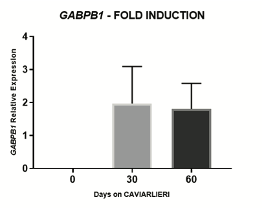
Genetic Expression Studies on Caviarlieri:
a. Modulation of Type 1 Collagen, COX 2 (inflammatory biomarker) and GABPB1 (energy gene)
Conclusion
It is evident from the above genetic expression studies that Caviarlieri is effective in the gene expression of genes related to Key Anti-Aging Biomarkers from participants age 18-83 years.

Why Caviarlieri?
Caviarlieri is a Swiss Caviar Food Supplement formulated with the finest Caviar Cellular Extracts and marine peptides and highly polymerized collagen which have strong anti-inflammatory properties and potent antioxidants and is scientifically and synergistically developed to stimulate and trigger our own body system to heal, repair and renew our cells versus damaged cells. By providing bio active nutrition at the cellular level, Caviarlieri helps to accelerate protein synthesis and cellular repair.
Caviarlieri is Backed by Science
Prior to the recent studies on mRNA and genetic expression, Caviarlieri already has several Peer Reviewed Scientific Studies published in PubMed and PMC Europe. The benefit claims are therefore evidence based, like significant increase in energy levels, mood elevation, reduction in joint pain, enhancement of sleep quality, improving brain health, strong anti-inflammatory properties and many others. It is important to remember that healing begins at the cellular level. These studies demonstrate Caviarlieri’s effective therapeutic outcomes and its ability to modulate and modify disease-related processes.
Caviarlieri is NOT A DRUG but a potent oral food supplement approved by the Swiss Public Health Authority. Unlike drugs or medications, there are no side effects for long term use. Caviarlieri is also certified by the German Sport University, Cologne as being free of steroids, hormones and stimulants which makes it safe for long-term use. Caviarlieri is available in the leading Swiss Medical Centres and Luxury Spas as well as selected pharmacies throughout Switzerland.
